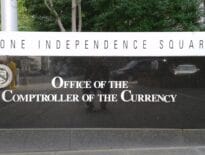Until now, most economic policy responses to the coronavirus have been constructed under optimistic assumptions of a rapid rebound. While we won’t know for a few more months whether this is the case, it is past time policymakers planned for the worst.
The massive federal government rescue packages passed in the early days of this crisis all had expiration dates that now seem arbitrary. Paycheck Protection Program loans had to be used in eight weeks. Expanded unemployment benefits were set to expire July 31.
Even a new federal rescue package passed by the House of Representatives in mid-May is built on a similar, short-term mindset. Among the many ideas included in the $3 trillion legislation is an extension of the expanded unemployment benefits through Jan. 31, 2021.
This kind of thinking from policymakers is dangerous. States across the country are reopening their economies, some more gingerly than others, hoping that most businesses and consumer demand has survived and will be able to pick up where it left off in late February. But our nation’s leaders will be whistling past the graveyard if they don’t also prepare for those hopes to be dashed.
It’s still fundamentally unclear whether huge sections of the economy that rely on in-person interaction – retail, restaurants, travel, elective medical care and hotels – will have enough PPE for their workers and the confidence of their customers to return to normal operations. A recent survey by McKinsey & Co. shows that fully 80 percent of Americans are waiting for additional changes – more cleaning in stores, medical experts’ endorsements and other changes – before returning to regular outside-the-house activities.
As these businesses struggle or fail outright, the knock-on effects will continue to be a drag on our economy. Consumption will decline, rents and mortgages will go unpaid and millions will lose or remain without jobs.
Congressional Democrats have a chance to make a major step towards heading off a crisis. Their latest $3 trillion rescue package is widely understood to be nothing more than a posturing exercise, and the actual next rescue bill will only come after negotiations with the Trump administration and Senate Republicans.
As Senate Majority Leader Mitch McConnell has made clear he opposes the extension of unemployment benefits and other economic aid, Democrats in Washington must fight tooth and nail in negotiations for more boosts to unemployment benefits and state Medicaid programs that sunset only after key indicators like the labor force participation rate show the nation is back to a much healthier economy. Without these, the nation will be forced to watch helplessly as Congress fights every few quarters on whether to continue programs that are fundamentally necessary to sustaining the businesses that survive the pandemic.
In 2010, a Republican wave took over Congress and halted any and all efforts to pass more economic stimulus. The result was an agonizingly slow recovery from the 2008 financial crisis. America shouldn’t let that happen again.
Letters to the editor of 300 words or less may be submitted via email at editorial@thewarrengroup.com with the subject line “Letter to the Editor,” or mailed to the offices of The Warren Group. Submission is not a guarantee of publication.





